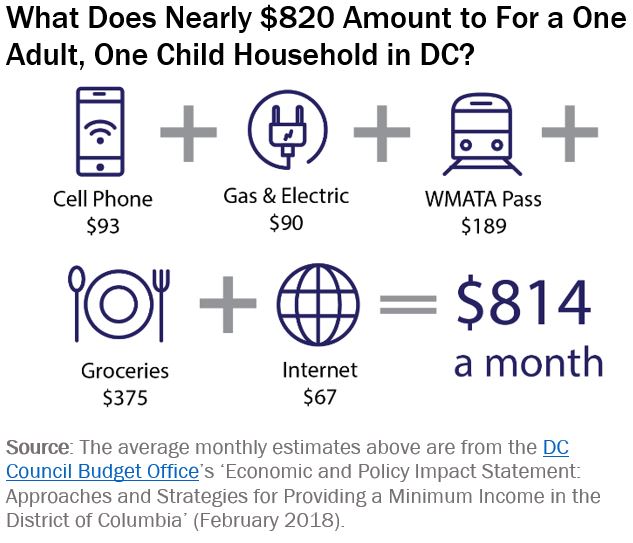WASHINGTON, DC—The District’s lowest-income families who currently pay more than 30 percent of their income on rent and utilities each month could have an extra $10,000 in their pockets each year if DC creates more affordable housing, according to a new report from the DC Fiscal Policy Institute (DCFPI).
The report, “Lower Rent Means More Cash for the Basics,” reveals that reducing monthly rent payments to 30 percent of income for DC’s lowest-income families would free up money for the things every family needs, like quality child care, fresh food, and transportation. The extra money in the pockets of DC’s residents struggling to get by would create more financially stable households that are better equipped to participate in DC’s growing economy.

The report found that for DC’s lowest-income families—those with incomes under 30 percent of the Area Median Income, or $36,400 for a family of four—capping rent at 30 percent of total income would free up $820 of their income each month on average, or $10,000 a year. For families with slightly higher incomes, between 30 percent and 50 percent of the area median income, access to affordable housing would free up $7,000.
“The disappearance of affordable housing in DC puts enormous stress on family budgets and leaves many at risk of eviction and homelessness,” says DCFPI Policy Director Tazra Mitchell. “Creating more affordable housing would not only help DC residents stay in their homes and communities, it also would dramatically increase their available income by lowering severely burdensome rents.”
In a city with skyrocketing housing costs, low-income renters in DC struggle with keeping a roof over their heads more now than they did ten years ago. There are 39,500 extremely low-income renter households who pay more than 30 percent of their income on housing today, while the number of homeowners struggling to pay their mortgages dramatically declined during the same time period. For residents of color, the numbers are worse—they represent nine out of ten households that pay more than half their income on rent.
“Adequate affordable housing is a racial justice issue,” says Mitchell. “Our city is not doing enough to ensure that native Black residents can afford to stay in their hometown, and we are leaving many Black and brown households with almost no income after rent to take care of their families.”
This new report lays out specific recommendations for reducing housing costs for DC’s lowest-income families, including adequate investments in the District’s complementary housing tools, an increase in rental subsidies, updates to zoning to be more inclusive of a larger range of areas, and expanding and strengthening rent control.
###
